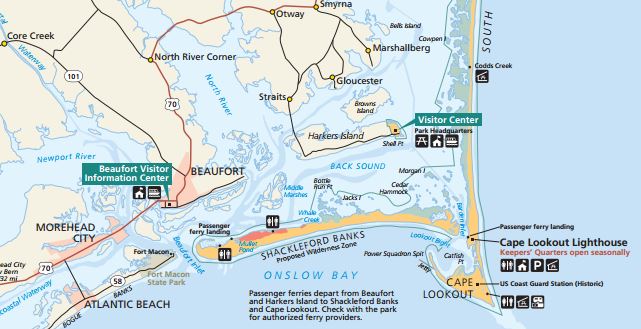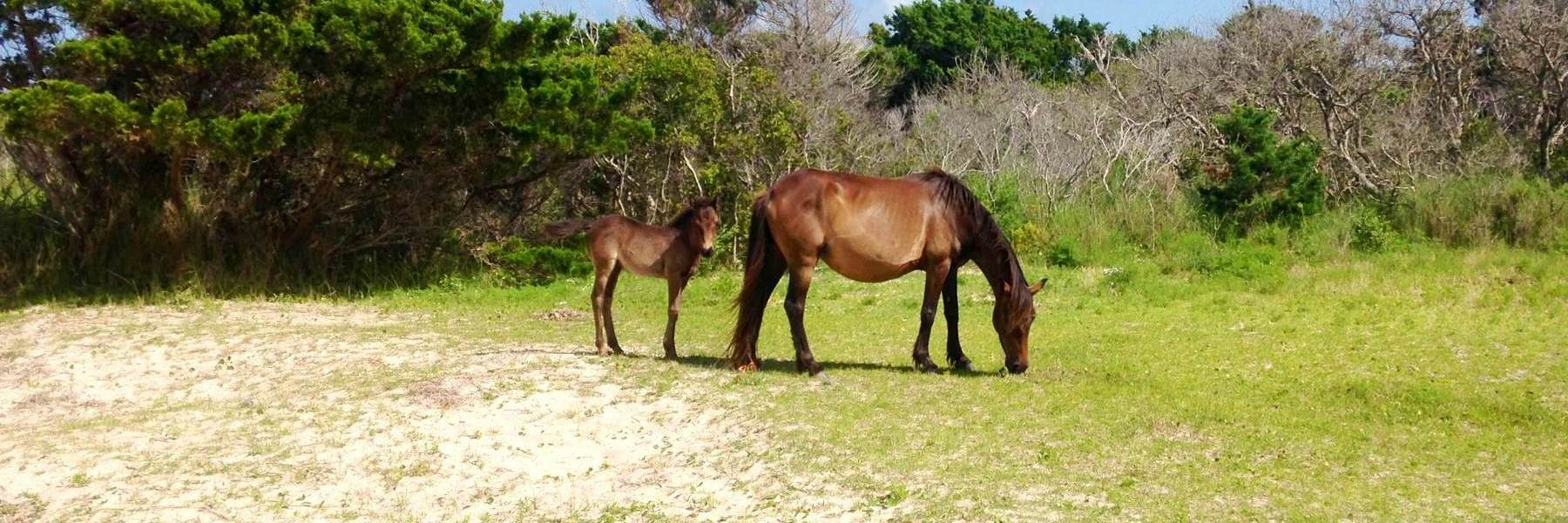Project Introduction
Shackleford Banks is the southernmost island of Cape Lookout National Seashore and home to a herd of feral horses. The horses, along with the lighthouse and beaches, are the main visitor draws to the park. While technically a non-native species, the park has actively maintained the horses as wildlife since 1996. Increasing visitation and lack of understanding by visitors of how to keep wildlife wild is threatening the herd. Visitors routinely get too close to the horses, trying to take photos, touch, or even feed the horses. Horses become habituated to people close by them, losing their healthy fear of humans, which increases the chances that people will be hurt when horses act instinctively. Waves of visitors disembark from passenger ferries and pass by the same groups of horses each day, multiplying the disturbance effect.

The purpose of this project is to improve effectiveness of wild horse management via the ongoing Wild Horse Public Education Campaign in Cape Lookout National Seashore, by enhancing the public’s knowledge of and behavior toward wild horses.

To this end, a Teacher Training Institute was hosted at Cape Lookout in June 2017, consisting of four upper elementary and middle school teachers from eastern North Carolina, as well as staff and educators from Cape Lookout National Seashore, North Carolina State University, and the University of Tampa. During the institute, teachers were immersed in ongoing research conducted on the island, and used workshop time to develop lesson plans that will contribute to environmental education curriculum focused on visitor-wild horse interaction. These materials, shared here, support North Carolina education standards, and can be readily incorporated into classrooms.
